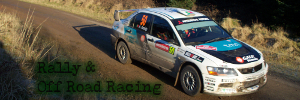















Dakar Rally |
|---|


|
| Topic Navigation |
|---|
|
Official Site: Dakar.com
Wikipedia: Dakar Rally Page Sections History Multimedia Article Index |
History
The following section is an excerpt from Wikipedia's Dakar Rally page on 15 February 2019, text available via the Creative Commons Attribution-ShareAlike 3.0 Unported License.
The race originated in December 1977, a year after Thierry Sabine got lost in the Ténéré desert whilst competing in the Abidjan-Nice rally and decided that the desert would be a good location for a regular rally. 182 vehicles took the start of the inaugural rally in Paris, with 74 surviving the 10,000-kilometre (6,200 mi) trip to the Senegalese capital of Dakar. Cyril Neveu holds the distinction of being the event's first winner, riding a Yamaha motorcycle. The event rapidly grew in popularity, with 216 vehicles taking the start in 1980 and 291 in 1981. Neveu won the event for a second time in 1980, Hubert Auriol taking honours in 1981 for BMW. By this stage, the rally had already begun to attract the participation of famous names from elsewhere in motorsport, such as Henri Pescarolo and Jacky Ickx.
Now boasting 382 competitors, more than double the amount that took the start in 1979, Neveu won the event for a third time in 1982, this time riding a Honda motorcycle, while victory in the car class went to the Marreau brothers, driving a privately entered Renault 20, whose buccaneering exploits seemed to perfectly capture the spirit of the early years of the rally. Auriol captured his second bikes class victory in 1983, the first year that Japanese manufacturer Mitsubishi competed in the rally, beginning an association that would last all the way until 2009.
At the behest of 1983 car class winner Jacky Ickx, Porsche entered the Dakar in 1984, with the total number of entries now at 427. The German marque won the event at their first attempt courtesy of René Metge, who had previously won in the car category in 1981, whilst Ickx finished sixth. Gaston Rahier meanwhile continued BMW's success in the motorcycle category with back-to-back wins in 1984 and 1985, the year of Mitsubishi's first victory of 12 in the car category, Patrick Zaniroli taking the spoils. The 1986 event, won by Metge and Neveu, was marred by the death of event founder Sabine in a helicopter crash, his father Gilbert taking over organisation of the rally.
Security concerns
The mid-2000s saw the Dakar Rally reach the height of its popularity. The entry list by 2004 increased to 595, up from 358 in 2001, with a record 688 competitors starting in 2005. Alongside Mitsubishi and Nissan, Volkswagen now boasted a full factory effort, while Schlesser's Ford-powered buggies and BMWs of the German X-raid team proved thorns in the side of the big budget works teams. The 2004 route was from Clermont-Ferrand to Dakar, and was the year Peterhansel emulated Hubert Auriol's feat of winning the rally on both two wheels and four. The Frenchman defended his title in 2005, when the rally began for the first time in Barcelona. In the bikes category, KTM continued their success with Nani Roma in 2004, who switched to the car category the following year, and Cyril Despres in 2005.
The 2006 event moved to Lisbon. Nissan pulled out having failed to provide effective opposition to Mitsubishi, who took a sixth consecutive victory, this time with former skiing champion Luc Alphand after Peterhansel committed a series of errors late in the rally. Peterhansel made amends in 2007, however, taking his third title in the car category for Mitsubishi after a close contest with Alphand after the increasingly competitive Volkswagens retired with mechanical problems. In what would be the final African event of the Dakar, Despres took his second title in the bikes category, having conceded victory in 2006 to Marc Coma after suffering an injury.
The 2008 event, due to depart Lisbon as per the previous two years, was cancelled on 4 January 2008 amid fears of terrorist attacks in Mauritania, causing serious doubts over the future of the rally. Chile and Argentina offered to host subsequent events, an offer later accepted by the ASO. The ASO also decided to establish the Dakar Series competition, whose first event was the 2008 Central Europe Rally, located in Hungary and Romania, which acted as a replacement for the cancelled 2008 edition of the Dakar.
| Date | Media or Collection Name & Details | Files |
|---|---|---|
| 8 January 2008 | Analysts Debate Economic Effects of Dakar Rally Cancellation Jade Heilmann for Voice of America News | Article Page - 3:17 |
